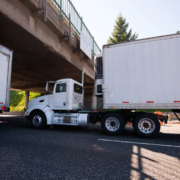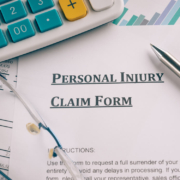How to Avoid Truck Accidents
As an automobile driver in West Virginia, sharing the highways and byways with trucks is something we all do every day. But cars and trucks are built differently. There are different acceleration speeds, braking systems and distances, fields of vision, blind spots, and vehicle weights. These all add up to different driving experiences for car drivers and truck drivers.
Studies have shown that half of all truck-involved accidents are caused by passenger vehicle drivers. And because semi-trucks are larger and heavier than cars, these accidents can be a lot more dangerous and deadly than typical car accidents, causing extensive car and property damage.
If you’re a West Virginia driver, then you should look at the following ways at how you can stay safe on the highways.
- Stay out of a truck’s blind spots. Due to the higher center of gravity that a truck driver has, he will have larger blind spots than an automobile. When passing a truck, you should do it on the truck driver’s side because his passenger’s (right-hand) side is the worst blind spot. Other blind spots include being behind a truck and driving in an adjacent lane behind the truck cab’s doors. How you can check to see if you’re in the blind spot is if you can see the truck driver in his mirrors. If he can’t be seen, then you’re in his blind spot. Here are the four blind spot areas for large tractor-trailer drivers:
- The right side. The largest trucker blind spot is on the right side of the vehicle, which stretches out up to two lanes of traffic.
- The left side. The blind spot on the left side of a semi-truck covers most of the length of the vehicle for one lane of traffic.
- Behind the vehicle. The commercial truck blind spot stretches 30 feet behind the vehicle, which makes it dangerous to follow an 18-wheeler too closely.
- In front of the vehicle. As strange as it may seem, truckers have a blind spot of up to 20 feet in front of the vehicle as well.
- Keep a safe following distance. Remember that following behind a truck is a blind spot, so do not tailgate. Due to their size and weight, 16-wheelers have longer stopping distances than cars, so give the truck ahead plenty of room (two times the room you would give a passenger car) so that the driver can stop if there are poor or hazardous road conditions. If a truck has to suddenly stop, you may not notice until it’s too late, causing a disastrous accident.
- If you’re driving in front of a truck, do not abruptly slow down or hit the brakes. Again, this has to do with the longer braking distance that a truck has. A truck needs enough time to slow down. If you do need to brake, make sure that the truck is not close behind you because it will most likely cause a rear-end collision instead of choose to veer into the next lane causing further damage.
- Anticipate wide turns from trucks. Trucks have to take up a lot of space to make any turns. If a truck is turning a certain direction, then a driver should pass on that side. Also tailgating or following too closely can cause an accident during a turn due to being in a truck’s blind spot.
- Let the truck change into your lane or pass. Move over when you see a truck coming up behind you. For lane changes, you can slow down slightly and then flash your high-beam lights twice to let the driver know that it’s OK to pass.
- If you get into an accident, make sure your vehicle is on the shoulder. This is important not only for other oncoming cars but for trucks as well. An accident can occur with a stopped car and a truck driver who momentarily got distracted or indisposed. Make sure your car is as far over as possible to decrease the chance of an accident.
- Pass truck in the left lane. Trying to pass a semi-truck from the right side is always a risky move. One reason for this is because the driver’s seat in all vehicles in the US is on the left side, and it is much more difficult for people who are driving 18-wheelers to see vehicles that are trying to pass on the right. Another reason that this is risky is because you never know when the driver might try to move over to the right lane or make a right turn. Big rig trucks normally drive in the right lane unless they are passing another vehicle, so you should assume that the driver eventually intends to move to the right.
This FMCSA video provides a good visual illustration of what the “no” zones look like as motorists are driving in traffic around big rig trucks.
Have you or a loved one been injured while in a truck accident? You should reach out to an experienced West Virginia personal injury attorney from our firm for exceptional handling of your case. The compassionate and skilled truck accident attorneys at Bailey Javins & Carter understand the challenges you’re facing. We have more than 40 years of experience getting compensation for victims of West Virginia truck accidents. We know how to handle insurance companies and to fight for the compensations and damages that you deserve. Contact our office at (304) 345-0346.



